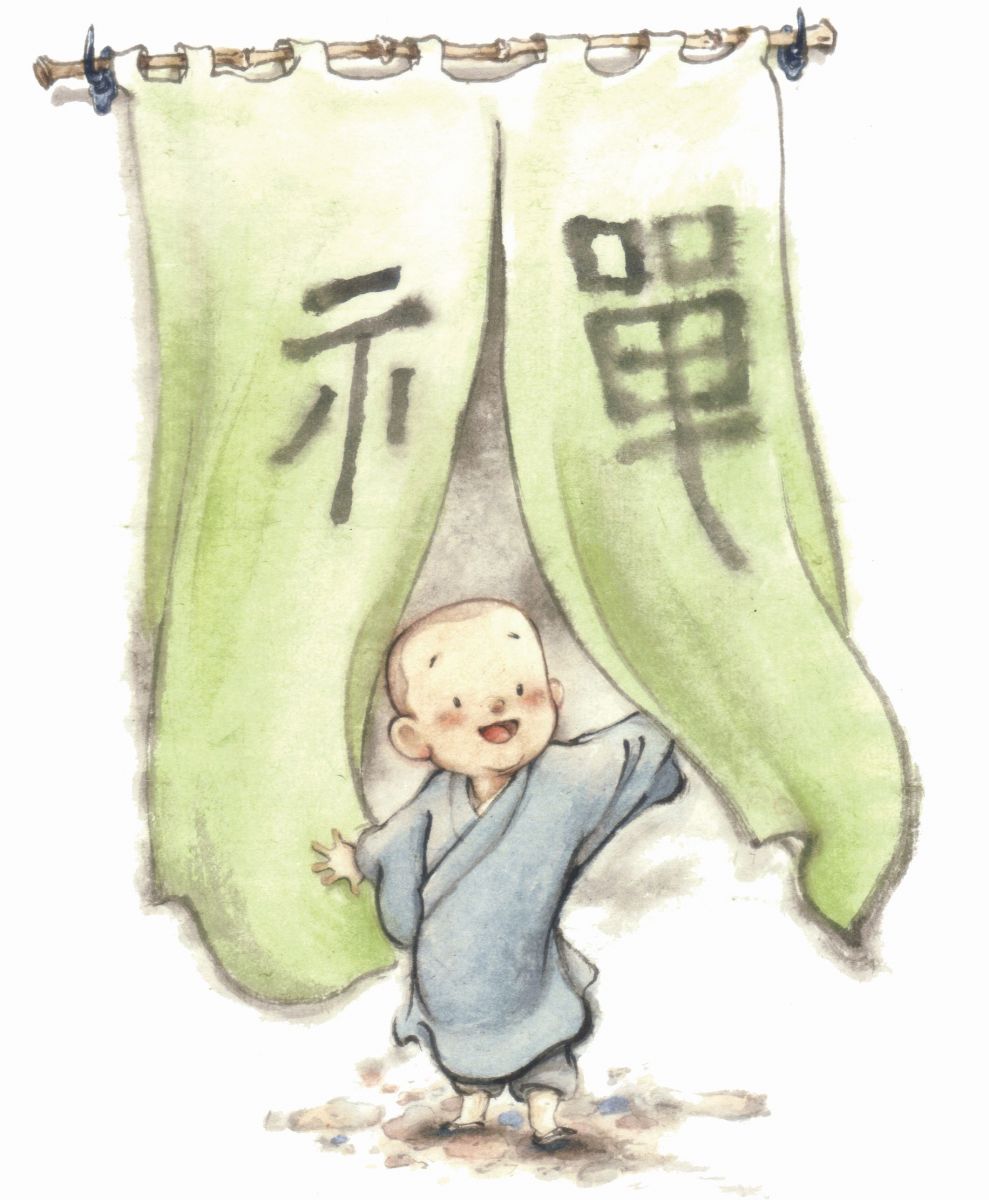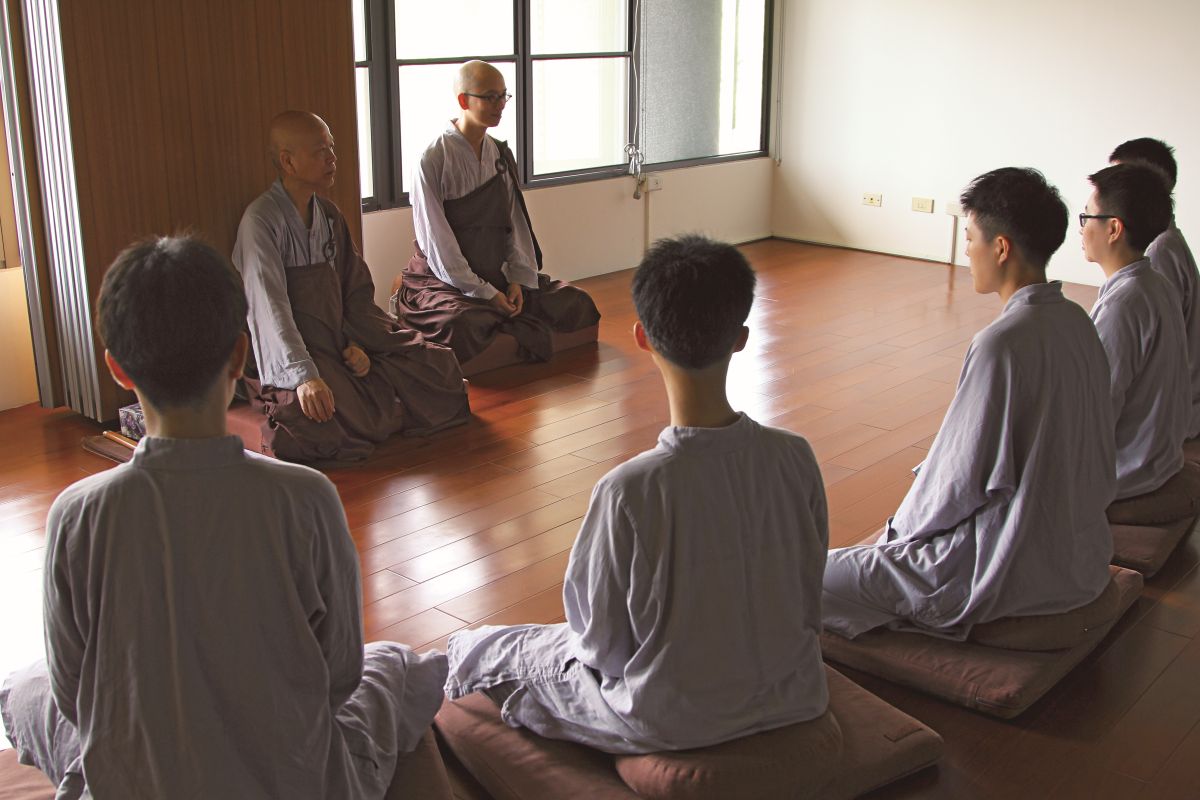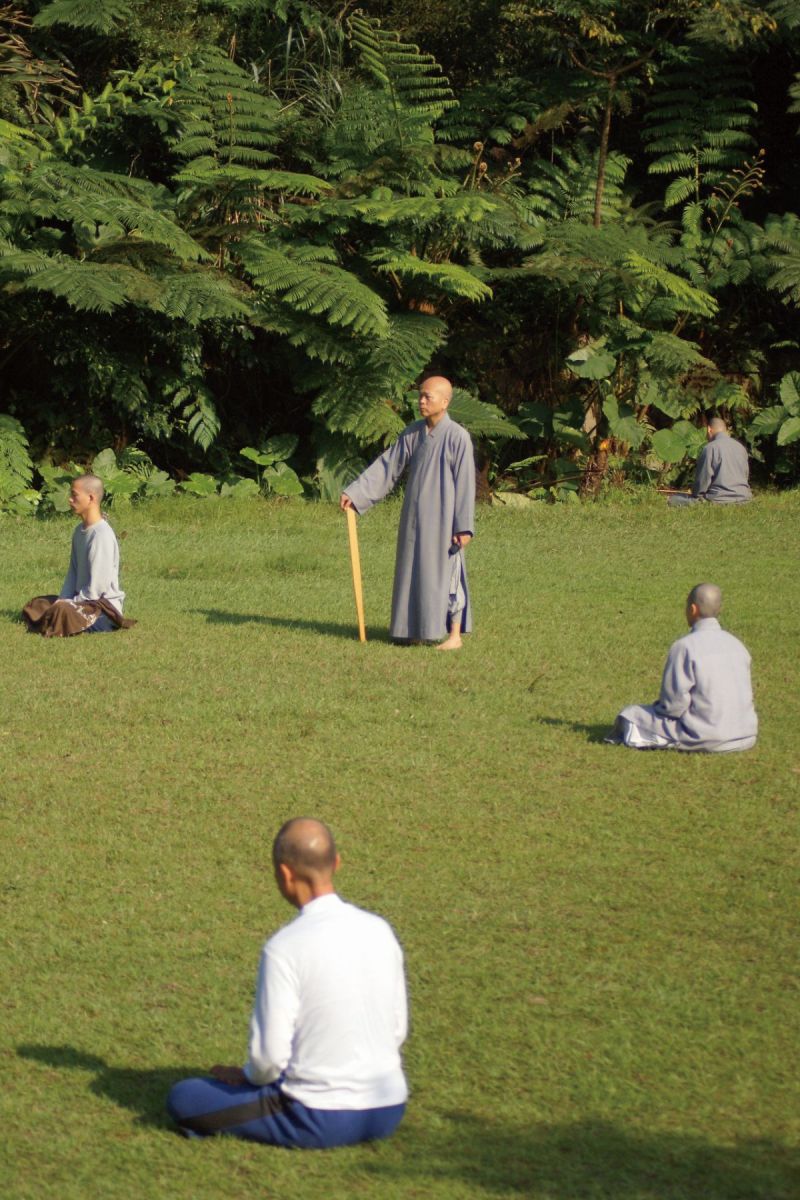Special Topics
Practice Chan Without Vexations
 As Master Sheng Yen said, sitting meditation has three functions: to harmonize body and mind, attain mental stability, and develop wisdom and compassion. Beginner Chan practitioners usually experience leg pain, body tension, soreness, numbness, aches, and itchiness, or may even fall into a state of dullness and torpor after only five minutes of sitting. Unable to stay awake on the cushion or constantly distracted by wandering thoughts, many feel frustrated for failing to apply the methods effectively, so they give up altogether. This is indeed a great shame.
As Master Sheng Yen said, sitting meditation has three functions: to harmonize body and mind, attain mental stability, and develop wisdom and compassion. Beginner Chan practitioners usually experience leg pain, body tension, soreness, numbness, aches, and itchiness, or may even fall into a state of dullness and torpor after only five minutes of sitting. Unable to stay awake on the cushion or constantly distracted by wandering thoughts, many feel frustrated for failing to apply the methods effectively, so they give up altogether. This is indeed a great shame.We can take a close look at our daily routines: are we often tense, following an irregular lifestyle, and sleep-deprived? Moreover, if we tend to multitask and work our brains too hard, then it is hardly surprising that we often fall into drowsiness or get carried away by delusional thoughts while sitting in meditation.
In fact, every Chan practitioner undergoes a long process of adapting and adjusting, before finally being able to engage practice methods effectively. Venerable Guo Yuan, DDM's Chan Hall master, had also experienced various conditions such as leg pain, uneasiness, and unregulated breathing when he first started learning meditation practice. "But I never thought of giving up. Instead, I tried even harder when things got tough," said the Venerable, who, continuing to practice in the ensuing decades, later became a Chan teacher himself, thereby benefitting both self and others.
In addition to physical discomfort, we often bring to our sitting practice our habitual tendencies to hurry, compare, and compete with others. Whether trying to hastily apply the method even before our body is properly relaxed, or anxiously expecting to attain a certain state or enlightenment, we will only achieve the opposite effect. When Ven. Chang Yuan, member of the Chan Hall, first learned meditation practice, he once experienced having even more wandering thoughts due to his impatient eagerness to apply the method. Thanks to a veteran practitioner's advice, he came to realize that, in fact, a relaxed body and mind is the most important foundation.
 When guiding Chan practice, Master Sheng Yen also constantly reminded practitioners that, while sudden enlightenment is possible, Chan practice is like building a house: we need to work on our ethical discipline, concentration, and wisdom in order to lay a solid foundation. Chan practice can help us honestly face our long-accumulated unwholesome habits of craving, anger and delusion. Therefore, we must not feel discouraged when facing obstacles, for they are signs that we have already embarked on our journey of Chan practice.
When guiding Chan practice, Master Sheng Yen also constantly reminded practitioners that, while sudden enlightenment is possible, Chan practice is like building a house: we need to work on our ethical discipline, concentration, and wisdom in order to lay a solid foundation. Chan practice can help us honestly face our long-accumulated unwholesome habits of craving, anger and delusion. Therefore, we must not feel discouraged when facing obstacles, for they are signs that we have already embarked on our journey of Chan practice.Obstacles are precisely opportunities for spiritual growth, whereby we can examine our personal problems. Are we having misconceptions about the practice? Are we using the method improperly, or are these problems caused by our bad habits? By bringing ourselves close to good spiritual teachers, proactively learning the Dharma, and engaging in practice with faith and confidence, we will gradually experience the benefits of Chan practice, thereby progressing in wisdom and compassion.
In cultivating Chan, many supporting practices are available to help adjust our body and mind, the most fundamental being "regulating the five matters"—diet, sleeping pattern, physical body, breathing, and mind. There are ways to develop a good daily routine, posture, and diet, among other aspects of life. Stretching, yoga, walking meditation, and prostration to the Buddha are all exercises for practicing Chan in motion, and can help soothe our tensed body and calm our burdened mind.

Regulating our mind actually starts with our daily activities. Following "being content with few desires and living in simplicity" as a guiding principle, Ven. Guo Yuan stressed the importance of regulating the mind in daily life. With a simple, regular daily routine, we'll have fewer scattered thoughts. Through continuous inner reflection and letting go of our mental knots and worries, we will reduce our afflictions and spend less time feeling troubled, thus allowing for continual improvement in our Chan practice.
DDM's Meditation Activity Department Director Ven. Chang Sheng encouraged practitioners to make a resolution to practice daily. The Venerable has maintained his daily morning and evening meditations for decades, and has constantly reminded himself of his initial aspiration. "Lay a solid foundation, and you will have a clearer idea about the direction of your practice." Chan practice is not only for the sake of ourselves, but also requires us to generate the bodhi mind. Ven. Guo Yuan also urged Chan practitioners to frequently practice giving and contribute themselves by serving the public, thereby reducing their egoistic self and accumulating meritorious virtues as an aid to spiritual practice.
Extended Reading:
Practice Chan Without Vexations
First Impediment: How to deal with leg pains, soreness, aches, itchiness, and numbness while meditating?
Second Impediment: Why do I feel drowsiness and leg pain when practicing in the Meditation Hall, even though everything feels fine during my meditation routine at home?
Third Impediment: Inability to Relax the Chronically Tense Body?
Fourth Impediment: Inability to Stop Unending Delusional Thoughts
Fifth Impediment: Meditation Makes Me Very Irritable, and Unable to Settle Down
Resource: Issue 383 of Life Magazine, Dharma Drum Publishing Corporation
Photos: Issue 383 of Life Magazine, Dharma Drum Publishing Corporation
Translation: Cheng-yu Chang (張振郁)
Editing: Chia-chen Chang (張家誠), Keith Brown
